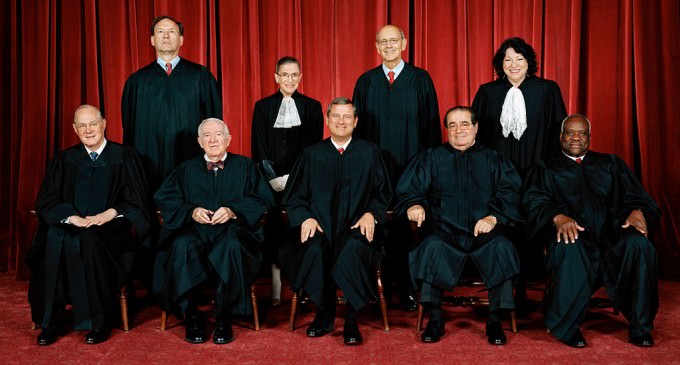
It has been said that elections are often won or lost not by how many votes a candidate receives, but by who counts the votes. In a U.S. Supreme Court case now being heard, there is a similar question regarding who is afforded representation in voting districts, and it could have a huge impact on the strength of heavily Hispanic regions and their representation for years to come.
In a ruling from the 1960’s, the word “person” was litigated, and Chief Justic Earl Warren wrote for the majority in Reynolds v. Sims that legislators represent “people” or “persons” without addressing whether the people represented were required to be citizens. If all “people” are counted for purposes of creating voting districts to be represented, then areas with a high concentration of non-citizens along with others who are not eligible to vote will be over-represented in legislative decisions.
In the Supreme Court case Evenwel v. Abbott, appellants from a Texas case are arguing that U.S. voting districts, from school boards to Congress, should be drawn to have equal numbers of eligible voters without including the non-voting numbers that can skew the totals.
Who benefits from current system, page 2:

Guess which way Roberts will vote? Mr. Anti-American…
ILLEGAL ALIENS should have no right to vote…if they do, I have had it
The obamas puppets.
Something I believe that y’all should look into,and perhaps pass along: http://beforeitsnews.com/politics/2015/12/pentagon-says-preparing-for-huge-civil-unrest-in-u-s-videos-2762088.html
Only legal citizens of the USA should be allowed to vote ! PERIOD !
Muslims are to deceive the Infidels… in the Quran it states that deception of the Infidels is good for the betterment of the religion…infiltrate the infidel society blend in with the Infidels and wait for their call to act (jihad )…all Muslims according to their Quran want to destroy our religion and alow only their Islam ideologys to remain…in the Quran it is demanded by Mohamed to take from the infidels, tax the infidels and in slave them, and if they refuse to convert to Islam infidels should be beheaded…their children stolen and turned into slave (raped and beaten into submission ), all adult males beheaded while their wives and daughters raped and mutilated prior to death…this is all in the name of ALAH…they tell their people to feel no shame because they are doing Allah’s work and they are praised for it…and whoever commits jihad their FAMILY will receive great blessings and gifts….! And that no matter where a Muslim is born their alegencies are with Islam…!
Ha ha ha what a shame.
All Votes Must be counted in the View of the Public , EVERY TIME , All Election no Exceptions ! Problem Solved!!!
These people need term limits.
S*****m is the one who keeps them busy